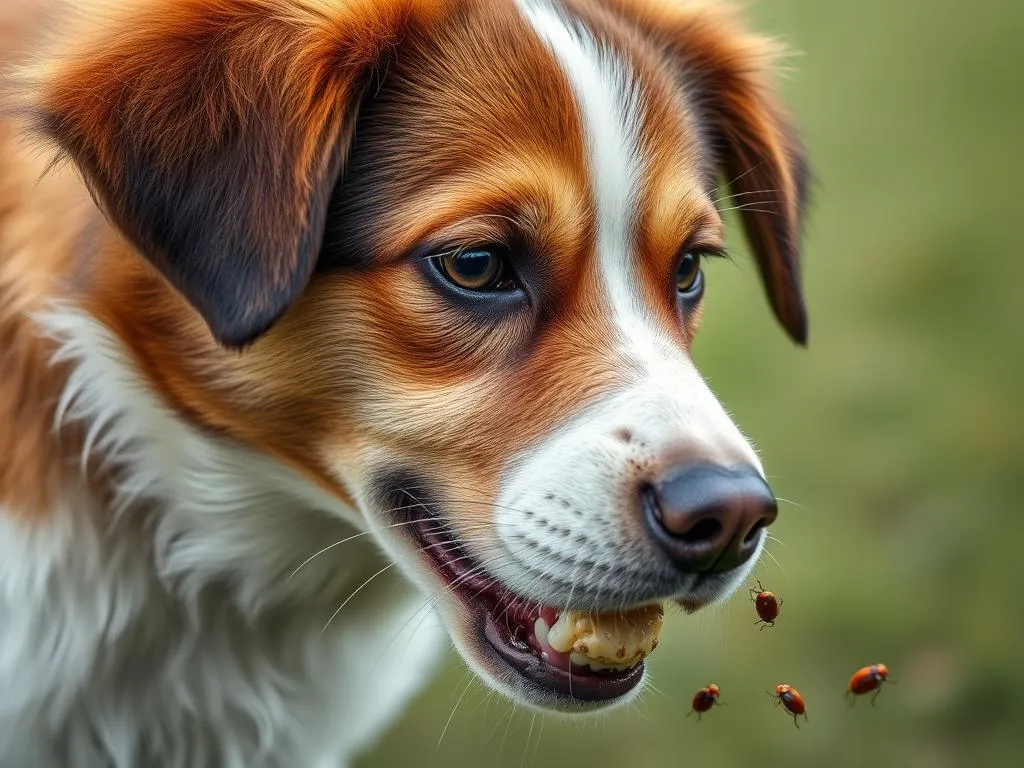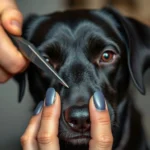
Dog health care is an essential part of responsible pet ownership, and understanding what your dog can safely consume is a significant aspect of that. As the weather warms up, cicadas emerge in droves, bringing with them a host of questions from pet owners. One of the most common inquiries is: can dogs eat cicadas? This article delves into the details of cicadas, their nutritional value, the safety of dog consumption, and much more.
Understanding Cicadas
What Are Cicadas?
Cicadas are fascinating insects belonging to the order Hemiptera and the family Cicadidae. They are known for their distinct sound, produced by males during mating calls, which can be heard during the warmer months. Cicadas have a remarkable lifecycle that includes several years underground as nymphs before they emerge, molt, and take flight. Depending on the species, some cicadas can live for up to 17 years before they emerge, while others may have a shorter lifecycle.
These insects are typically found in wooded areas and gardens, often clinging to trees and shrubs. Their seasonal appearance coincides with summertime, making them a common sight during outdoor activities.
Nutritional Value of Cicadas
Cicadas boast a surprisingly rich nutritional profile. They are high in protein, typically containing about 30-40% protein by dry weight. Additionally, cicadas have a good amount of fat, fiber, and essential vitamins and minerals. This makes them a potentially nutritious snack for dogs, especially when compared to other common insect sources.
For example, while crickets and mealworms also provide protein, cicadas have a unique blend of nutrients that can be beneficial. Their environmental sustainability is another appealing factor, as they are abundant and require fewer resources compared to traditional livestock.
Can Dogs Eat Cicadas?
General Safety of Insects for Dogs
Insects, in general, can be a safe snack for dogs. Many dog owners have successfully introduced insects like crickets and mealworms into their pets’ diets due to their high protein content and low fat. However, it’s important to be cautious. Not all insects are safe for canine consumption, and some may carry harmful bacteria or toxins.
Specifics of Cicadas and Dog Consumption
So, can dogs eat cicadas? The answer is generally yes. Cicadas are not toxic to dogs, which means they can be consumed without causing immediate harm. In fact, cicadas can serve as a healthy protein source, especially during the times when these insects are plentiful.
Potential Risks of Eating Cicadas
Despite their benefits, there are some potential risks associated with dogs eating cicadas.
-
Allergic Reactions and Digestive Issues: Just like humans, dogs can have allergies to certain foods, including insects. Monitor your dog closely after they consume cicadas for any signs of an allergic reaction, such as excessive scratching, vomiting, or diarrhea.
-
Risk of Pesticides and Pollutants: Cicadas may be exposed to pesticides and pollutants in their environment, which can be harmful to dogs. It’s advisable to ensure that any cicadas your dog may eat are from a safe, pesticide-free area.
-
Choking Hazards: Like any food item, cicadas can pose a choking hazard, especially for small dogs. If you choose to allow your dog to eat cicadas, ensure that they are properly chewed or consider cutting them into smaller pieces to reduce the risk.
What to Do If Your Dog Eats Cicadas
Observing Your Dog
If your dog happens to eat cicadas, it’s important to observe their behavior closely. Look for any signs of distress, such as excessive drooling, vomiting, or lethargy. Most dogs will not experience any adverse effects, but it’s always best to be cautious.
Veterinary Advice
If you notice any concerning symptoms after your dog eats cicadas, contact your veterinarian. Common treatments for insect ingestion may include inducing vomiting or administering medications to settle the stomach. Early intervention can often prevent more serious health issues.
Alternatives to Cicadas
Safe Insects for Dogs
If you’re concerned about the safety of cicadas, there are plenty of other insects that are safe for dogs to eat. Here are a few options:
- Crickets: High in protein and low in fat, crickets are a popular choice for pet owners looking to add insects to their dog’s diet.
- Mealworms: These insects are also rich in protein and can be fed to dogs either whole or ground into a powder.
- Grasshoppers: Another nutritious option, grasshoppers can provide a healthy snack for dogs.
These alternatives not only offer similar nutritional benefits but also reduce the risks associated with cicadas.
Homemade Dog Treat Recipes with Insects
If you’re interested in incorporating insects into your dog’s diet, here are a couple of simple recipes:
Cricket Dog Treats
Ingredients:
– 1 cup whole wheat flour
– 1/2 cup cricket flour
– 1/4 cup peanut butter
– 1/4 cup water
Instructions:
1. Preheat your oven to 350°F (175°C).
2. Mix all ingredients in a bowl until a dough forms.
3. Roll out the dough and cut it into desired shapes.
4. Bake for 15-20 minutes or until golden brown. Allow to cool before serving.
Mealworm Biscuits
Ingredients:
– 2 cups oats
– 1/2 cup mealworms
– 1/4 cup pumpkin puree
– 1/2 cup water
Instructions:
1. Preheat your oven to 350°F (175°C).
2. In a bowl, combine oats, mealworms, pumpkin puree, and water. Mix until well blended.
3. Shape the mixture into small biscuits and place them on a baking sheet.
4. Bake for 25-30 minutes until firm. Let cool before offering to your dog.
These recipes provide a nutritious and tasty treat that your dog will love!
Best Practices for Dog Health Care
Regular Veterinary Check-Ups
Routine check-ups with your veterinarian are crucial for maintaining your dog’s health. Regular assessments can help identify any potential health issues early on. Keep your dog up to date with vaccinations and preventive care, as this can significantly enhance their overall health and longevity.
Nutrition Considerations
A balanced diet is essential for your dog’s health. Make sure that their meals contain a variety of protein sources, including meats and, when appropriate, insects. This diversity ensures they receive all the necessary nutrients for a healthy life.
Keeping Your Dog Safe
Monitoring your dog’s food intake is vital. Be conscious of what they are eating, especially if they are foraging outdoors. Creating a safe environment for your dog will reduce the chances of them consuming harmful substances.
Conclusion
In summary, cicadas can be a nutritious snack for dogs, but pet owners should be aware of the potential risks involved. Monitoring your dog after they consume cicadas is essential to ensure their safety. If you have any concerns, consult with your veterinarian for personalized advice.
Maintaining your dog’s health requires a holistic approach, from regular vet visits to a balanced diet. By understanding what your dog can safely eat, including the occasional cicada, you can help ensure they lead a happy and healthy life.
FAQs
Can all dogs eat cicadas?
Most dogs can eat cicadas without issue, but individual sensitivities vary. Always monitor your dog for any adverse reactions.
What should I do if my dog has an allergic reaction to cicadas?
If you suspect your dog is having an allergic reaction, contact your veterinarian immediately. They can provide guidance on the next steps.
How can I tell if cicadas are safe to eat?
Ensure that cicadas are sourced from a clean, pesticide-free environment. If you’re unsure, consider alternatives that are known to be safe for dogs.









